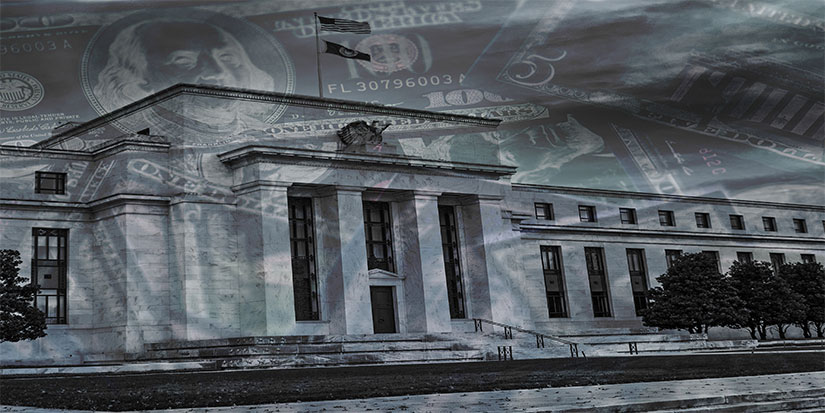
How to Lose Money
In January 2000, I decided to short some dumb internet stocks. That was going fine until the Fed did a surprise rate cut, at which point those trades went up an uncomfortable orifice.
Edward Jones Is Better Than Vanguard
You may find this hard to believe, but Edward Jones does more good in the world than Vanguard.
Be Smart
The BE SMART podcast has been in existence for a while, and I thought it was a clever bit of branding on my part, because isn’t that what we all hope to aspire to do in money and markets—be smart?
The Best of Times, the Worst of Times
Trading is funny—sometimes things are going really well, and sometimes things are going very poorly.
Swamp Yankees
I was in Connecticut last week doing a little philanthropy work at my high school. I work with the marching band. Loads of fun.
I stayed at the Mohegan Sun, a giant casino in the middle of the woods in Connecticut. It was hopping with people at the slots, the table games, and the sportsbook. Keep in mind that Southeastern Connecticut is not exactly the economic engine of New England. The people at the Federal Reserve keep telling me that we are headed into a recession. I don’t see it!
Here is what is happening:
The jobs market data has been deteriorating for some time. As you know, the unemployment rate has risen from 3.5% to 4.2%. The Fed is confusing this labor market weakness with overall economic weakness when really what is going on is a normalization of the labor market since the excesses of the pandemic. We pumped $3 trillion into the economy and had massive labor shortages. Those excesses have been worked off, and we have returned to something resembling a normal labor market.
But the Fed thinks this is an indication that we are headed into a recession. So, the Fed is cutting rates when it really shouldn’t, which will lead to more inflation down the road. That is my thesis in a paragraph.
Now, if the Fed is cutting rates when everything is basically fine, then this is going to have some direct capital market impacts. Stocks will go up. Commodities will go up. Long-duration bonds will go down, and the yield curve will steepen. That is the thesis for the next three to six months.
Not to mention the fact that we have an election coming up, where both candidates are perceived to be inflationary. Recently, in this letter, I predicted that commodities had bottomed and would rise. That has come to pass. This is only the beginning.
Why Can’t the Fed See This?
Well, for one thing, the Fed is a political animal, and there are a lot of politics tied up in the jobs market. When people start losing their jobs, politicians panic, and they blame the Fed. There is also a conspiracy theory going around that the Fed is trying to goose the markets right in front of the election to ensure a Harris victory.
I don’t buy that—the Fed has been talking about cutting rates since last December, and it wasn’t until a terrible payroll number that it finally panicked. It just worked out that way. But nobody likes unemployment. Keep in mind that 4.2% unemployment is historically very, very low, and the labor force participation rate seems to have stabilized. There is no reason to panic, but the Fed panicked, and it’s probably going to cut rates 150 bps at a minimum.
It can’t see this because it’s a group of 19 people in the middle of a big, dumb organization. People are smart; organizations are stupid. I have said for years that the Fed follows the “path of least embarrassment.” If the economy had gotten worse, and the Fed took no action, and the unemployment rate went to 5%, it would be embarrassing. The Fed is minimizing future regret.
In 2021 and 2022, the Fed cared about inflation. Now that inflation has been tamed, it cares about growth. It is my opinion that it should still care about inflation.
I asked my class recently what they thought the rate of inflation was. They said 10%. That is what they call “inflation expectations.” If people think that inflation is 10%, they will act in such a way as to perpetuate high inflation. And the only way to fix inflation expectations is to have a massive recession. Nobody wants that.
They want to have their cake and eat it too.
Have You Seen Gold?
Gold has gone bananas since breaking out from $2,530/ounce. It has gone straight up.
What does gold know? Gold is discounting a highly inflationary period ahead. I’m pretty sure I’ve written my thesis in here before—gold simply discounts the probability of future debt monetization. And with both candidates (one more than the other) threatening to run even higher deficits, the chance that the Fed will someday have to peg the yield curve, printing a virtually unlimited amount of dollars to buy government bonds to keep interest rates low, has gone up.
Lots of people are happy that gold is going up. I own a lot of gold, so I am happy about it. But it is nothing to be happy about. If gold goes up a lot, the world will not be a happy place. Fun for now, but not fun later.
The Fed is in the midst of committing a huge policy error. This creates opportunities.
NIGHT MOVES
As I wrote last week, my new short story collection, NIGHT MOVES, was released. I know how many people are on this list. I know how many people clicked on the link to buy the book, and we have to do better.
Guys! I don’t write bad books. I get it—asking someone to read and buy a $19 book is more than just about the money—who has time to read? You have to get people to climb a wall of indifference.
The reviews for this book have been outstanding, above and beyond what’s on the Amazon page. You will thoroughly enjoy this book. It’s hyperrealistic, unlike a lot of the literary fiction out there. And the prose is wonderful. Trust the 50-year-old, longhaired, fat newsletter writer. This is my best book yet.
Thanks!

Jared Dillian, MFA
|
